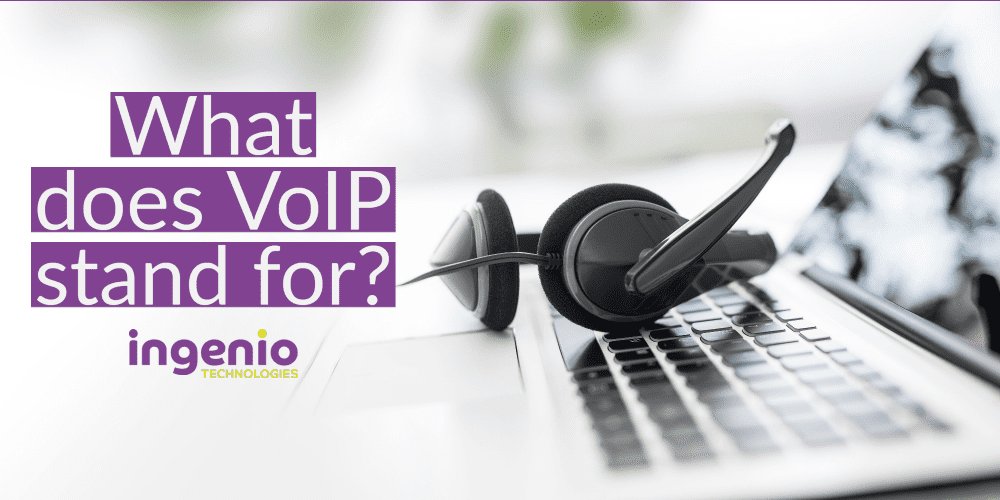The IT industry is full of acronyms and technical jargon. VoIP is an acronym for Voice over the Internet protocol, you may still be thinking – what does that mean? In simple terms it replaces your traditional landline phone and uses your internet connection to make calls and video calls. With landlines (also known as PSTN) becoming obsolete in 2025, the shift to internet voice calls will become the norm for everyone.
How do VoIP phones work?
A VoIP call works in a similar way to landlines but uses the internet to provide the connection between one caller and another. VoIP is a great alternative to traditional landline phones as you are not bound by location whereas a landline is hardwired to an area using copper wires. For example, we know of many people who take their work phone with them and will plug it in when they travel abroad, and from a customer perspective, you wouldn’t even know they were in a different country.
With an internet connection, you can make telephone calls over the internet without the need for traditional phone service. All that’s required are high-speed Internet and VoIP (Voice over Internet Protocol) providers to handle your calls.
Benefits of VoIP services
Cheaper
Businesses have noticed a 60% reduction in costs which is something worth noticing during this current economic crisis. Many VoIP providers will include free/discounted calls to certain numbers as standard, reducing the cost of your monthly phone bill. As an added bonus international long distance rates are generally a lot cheaper than using a landline.
Better sound call quality
There is a noticeable difference when speaking and it is much clearer when using a VoIP phone compared to using a traditional landline which are still reliant on outdated cabling that may not have been upgraded for a number of years.
Advanced features
Businesses can run their companies with the help of premium features such as auto attendants, call recording and queueing. These are often included in business phone service plans, you can implement these tools to make your day-to-day work easier.
No need for a physical phone
Another added feature of VoIP is you no longer have to rely on a physical handset to make calls, you can use your mobile, tablet or PC with a softphone licence. This gives you all the functionality of a traditional handset but with the flexibility of being used on an alternative device.
Working from home
With the increase in hybrid working, having the flexibility for staff to work outside the traditional office can be a huge bonus and by using VoIP there is no need to worry about a drop in phone calls. Many companies will now have a physical phone in the office and staff will use a softphone app from home, allowing for the functionality for making and receiving calls, wherever they may be.
With the move from traditional PSTN phone lines happening in 2025 (you can read more about this pressing issue here), it’s not a question of if, but when you need to make the move to VoIP. In order to minimise the disruption this may cause to your business, we highly recommend making the transition sooner rather than later. If this is a project that you would like some help with, call our VoIP experts today, who would love to help you – call 01273 806211 or email [email protected]


